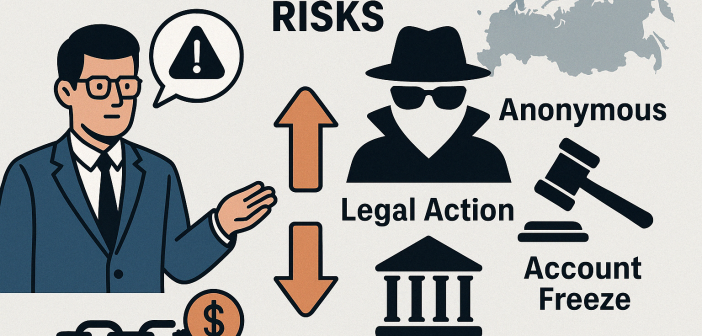Crypto P2P platforms are becoming increasingly risky for users in Russia, according to legal expert Ignat Likhunov. Speaking at the RBC-Crypto Forum on April 19, the founder of Cartesius Law highlighted legal threats, platform vulnerabilities, and provided practical advice on how users can protect themselves.
Initially praised for anonymity and decentralization, crypto P2P platforms are now under scrutiny due to their misuse in illegal activities, from darknet operations to unregulated gambling. This shift has triggered state responses, account freezes, and even criminal charges.
Why Governments Are Cracking Down on P2P Crypto
In 2025, buying stablecoins like USDT through P2P exchanges can be fraught with legal consequences. Likhunov pointed out the rise in “drop” accounts, third-party schemes, and fraudulent intermediaries, which make it harder to ensure a safe transaction.
Authorities argue that P2P crypto transactions facilitate money laundering and sanctions evasion, prompting law enforcement to act under laws such as Russia’s 115-FZ. The Central Bank has even proposed limiting crypto exchange access altogether.
“It’s a sovereignty issue,” said Likhunov. “Governments don’t like losing control, and this is happening everywhere—only the intensity differs.”
Main Dangers for P2P Crypto Users
Users face risks such as having their bank accounts frozen or being falsely implicated in money laundering. Sellers may unknowingly receive fiat from cards linked to criminal activities, including scams or drug trafficking.
“The scary part,” Likhunov emphasized, “is that these things happen not because people are guilty, but because there is no clear crypto regulation in Russia.”
Still, he reassured the audience that those uninvolved in criminal schemes can often resolve issues by simply providing trade records. However, for some, especially sellers, the consequences could escalate to criminal proceedings.
How to Stay Safe on P2P Crypto Platforms
Likhunov offered five key tips to minimize P2P crypto risks:
-
Use platforms that require user verification and store all trade data.
-
Avoid working with anonymous or unverified counterparts.
-
Check reputation scores and user reviews where possible.
-
Be wary of offers that are too good to be true—they often are.
-
Be ready to show complete trade documentation if questioned by authorities.
Ultimately, the Russian P2P crypto market is evolving toward greater transparency. Those who adapt will likely remain operational, while others may be pushed out of the space.




